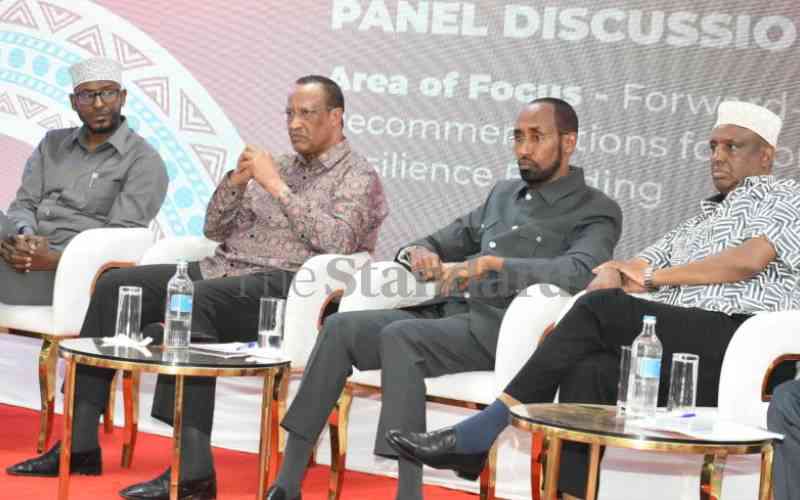
Governors from key Arid and Semi-Arid (ASAL) counties and representatives of various humanitarian agencies, including the United Nations Children's Fund (UNICEF), World Food Programme (WFP), African Development Bank (AFDB), and Finn Church Aid (FCA) on Thursday held a roundtable engagement to review and discuss efforts towards resilience building within ASAL regions.
The delegation included Rebecca Miano, the Cabinet Secretary for the East African Community, Arid and Semi-Arid Lands and Regional Development; governors Nathif Jama Adan, Garissa; Mohamed Adan Khalif, Mandera; Abdi Ibrahim Hassan, Isiolo; Muhamed Ali, Marsabit; Ahmed Abdullahi, Wajir, and Deputy governor Isiolo. Also present were the United Nations resident coordinator, Stephen Jackson, and UNICEF Kenya representative, Shaheen Nilofer.